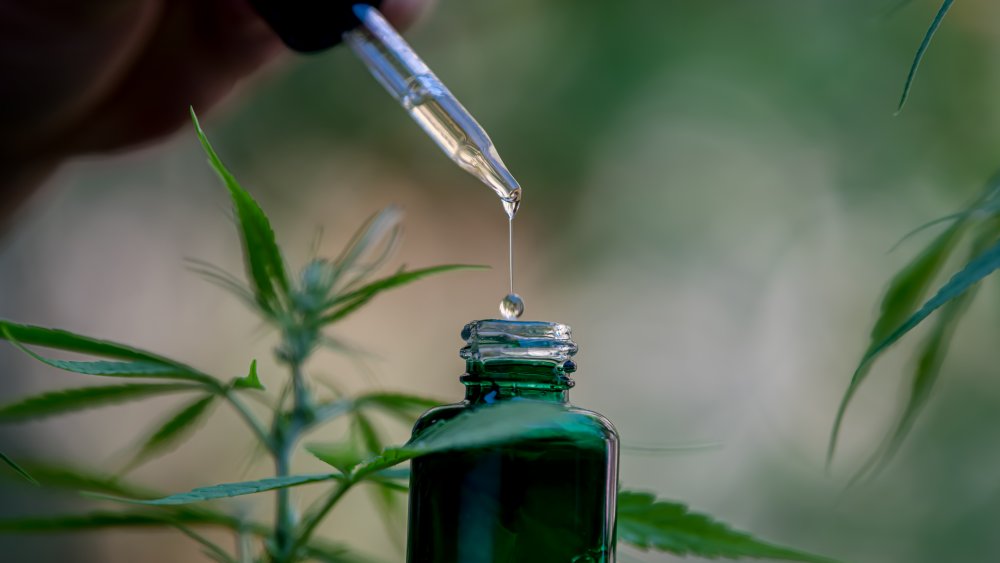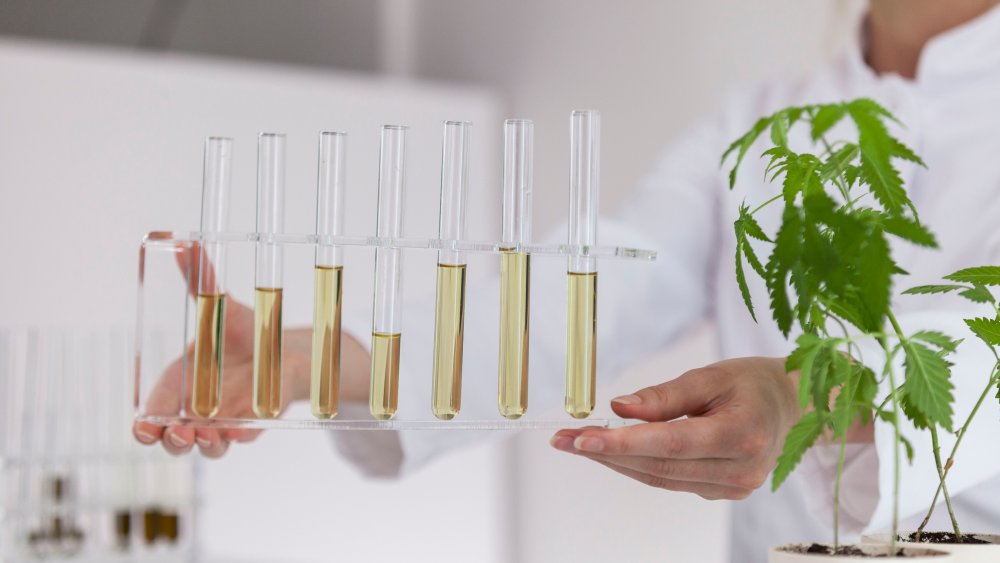Is CBD Oil Good Or Bad For You?
CBD oil seems to be everywhere these days, touted as a treatment for everything from aches and pains to insomnia. But is it as effective as some claim, and is it even safe to use? For that matter, is it legal where you live?
CBD is the shorthand for cannabidiol, which is the second-most commonly found compound in cannabis and hemp, according to TIME. The most abundant compound in cannabis is tetrahydrocannabinol (THC), which is the psychoactive element that creates a "high." CBD on its own has no psychoactive properties and doesn't appear to be addictive, according to a report from the World Health Organization.
Every state has some laws regulating the use of CBD (via CBD Awareness Project). Federally, it is legal if it is derived from hemp, which contains less than 0.3 percent THC. If it comes from marijuana, it is still illegal at the federal level (via PBS). That's why it's important to read the packaging when purchasing CBD and to know where it comes from (via Healthline).
What does CBD oil treat?
Only one drug made with CBD has been approved by the FDA for medical use. Epidiolex is a medication that treats some types of epilepsy. CBD is currently being studied as a treatment for other conditions, though, including anxiety, schizophrenia, diabetes, multiple sclerosis, Parkinson's disease, according to the Mayo Clinic.
Anecdotally, people report positive results from CBD for treating anxiety, sleeplessness, and nausea. Studies have shown it effective in treating chronic pain in animals, according to Harvard Health Publishing. It can have some side effects, including nausea, fatigue, and irritability, and can affect the blood levels of certain medications like coumadin.
Because CBD is unregulated, it's difficult to know what you're getting when you make your purchase. Before adding any new compound, including CBD, into your health regimen, it's a good idea to talk to your doctor to avoid interactions with other medications or unpleasant side effects.


